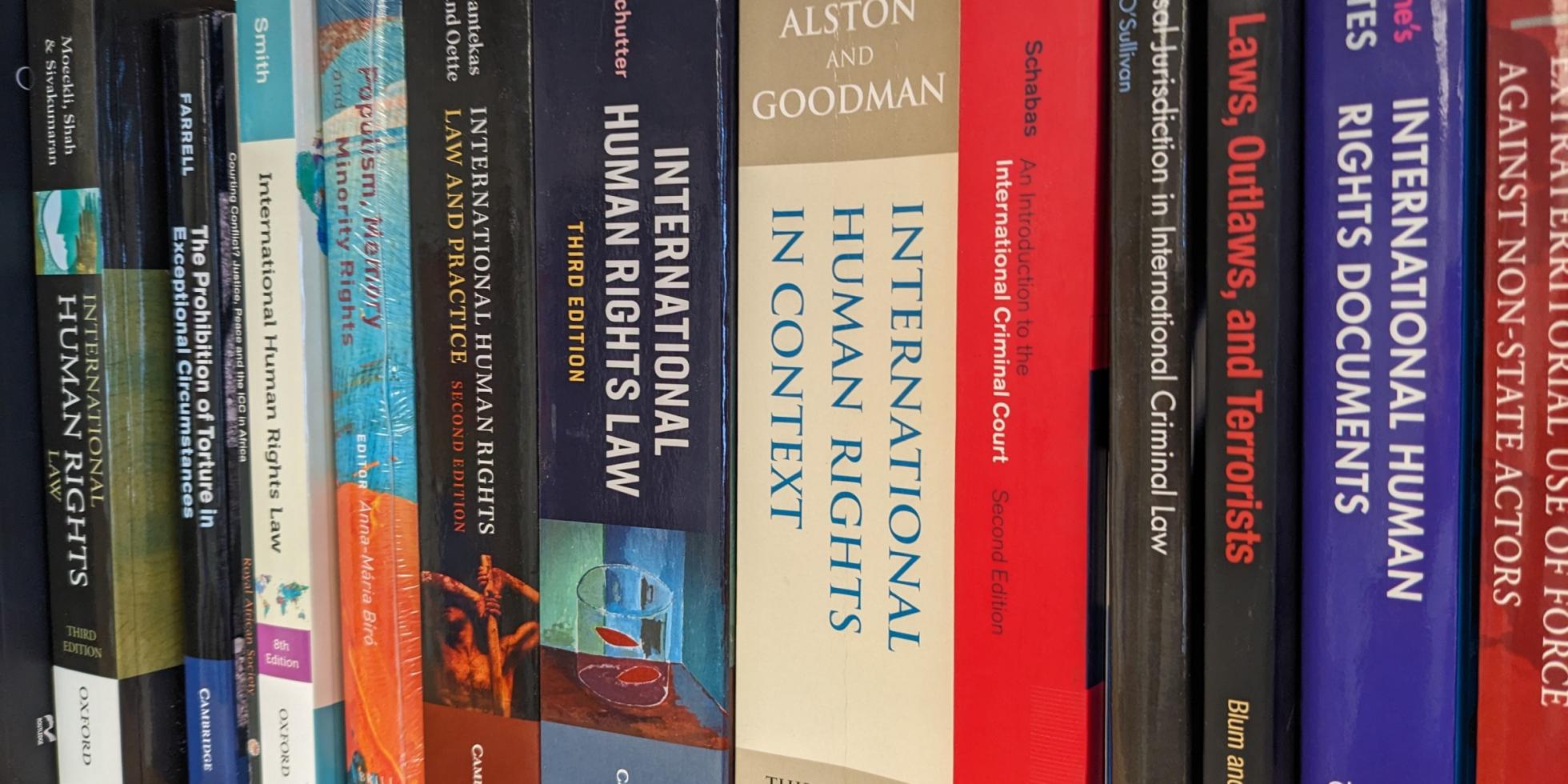The virtual human rights library brings together resources from multiple libraries and information services, both internal and external, to create an online hub dedicated to the study of human rights. This curation is unique in its interdisciplinary concerns and focuses on writings and research from social sciences, humanities, and law.
The virtual library is continually updated with the latest academic research in issue areas, as well as with relevant films, recorded conversations, and other forms of media.
Please Note:
The Virtual Library is usable by all visitors, but the hyperlinks to materials listed are for UChicago community members with a CNet ID and password.
Please direct feedback and suggestions to Kathleen Cavanaugh.
For technical assistance, email pozenhumanrights @ uchicago.edu.
Searchable Database
Click into the dropdowns to select the disciplines, keywords, and media type for your search, and then hit "Apply."
"Bias In, Bias Out"
Police, prosecutors, judges, and other criminal justice actors increasingly use algorithmic risk assessment to estimate the likelihood that a person will commit future crime. As many scholars have noted, these algorithms tend to have disparate racial impacts. In response, critics...
"Critical Questions for Big Data: Provocations for a cultural, technological, and scholarly phenomenon"
The era of Big Data has begun. Computer scientists, physicists, economists, mathematicians, political scientists, bio-informaticists, sociologists, and other scholars are clamoring for access to the massive quantities of information produced by and about people, things, and their interactions. Diverse groups...
"Slave to the Algorithm? Why a 'Right to an Explanation' Is Probably Not the Remedy You Are Looking For"
Algorithms, particularly machine learning (ML) algorithms, are increasingly important to individuals’ lives, but have caused a range of concerns revolving mainly around unfairness, discrimination and opacity. Transparency in the form of a “right to an explanation” has emerged as a...
Captivating Technology: Race, Carceral Technoscience, and Liberatory Imagination in Everyday Life
From electronic ankle monitors and predictive-policing algorithms to workplace surveillance systems, technologies originally developed for policing and prisons have rapidly expanded into nonjuridical domains, including hospitals, schools, banking, social services, shopping malls, and digital life. Rooted in the logics of...
Challenge for Change: Activist Documentary at the National Film Board of Canada
The activist documentary program Challenge for Change/Société nouvelle, which ran from 1967 to 1980 and produced films in both French and English, stands out as a particularly influential and original part of the National Film Board of Canada's critically acclaimed...
Code and Other Laws of Cyberspace
There’s a common belief that cyberspace cannot be regulated-that it is, in its very essence, immune from the government’s (or anyone else’s) control. Code, first published in 2000, argues that this belief is wrong. It is not in the...
Dark Matters: On the Surveillance of Blackness
In Dark Matters, Simone Browne locates the conditions of blackness as a key site through which surveillance is practiced, narrated, and resisted. She shows how contemporary surveillance technologies and practices are informed by the long history of racial formation and...
Digital Militarism: Israel's Occupation in the Social Media Age
Israel's occupation has been transformed in the social media age. Over the last decade, military rule in the Palestinian territories grew more bloody and entrenched. In the same period, Israelis became some of the world's most active social media users...
Documentary Testimonies: Global Archives of Suffering
Documentary Testimonies examines documentary films that compel us to bear witness, move us to anger or tears, and possibly mobilize us to action.
Comprising ten new essays and a substantive introduction, this interdisciplinary volume examines audiovisual testimonial practices, forms, and...
Native American DNA: Tribal Belonging and the False Promise of Genetic Science
Who is a Native American? And who gets to decide? From genealogists searching online for their ancestors to fortune hunters hoping for a slice of casino profits from wealthy tribes, the answers to these seemingly straightforward questions have profound ramifications...

